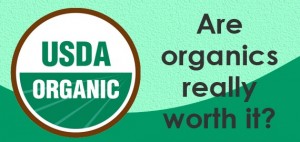Humans have always been working on ways to grow more food; one of the biggest advances was the introduction of pesticides in the late 1930’s. Thanks to pesticides, food production increased exponentially and has allowed the population to grow and to eat. However, since the introduction of the National Standards for Organic Products in 2002 our demand for pesticide free food has markedly increased which, paradoxically, is reducing the amount of food produced per acre. At the same time, there are “roughly 800 million people [who currently] suffer from hunger and malnutrition” on Earth, yet we are demanding industry reduce the amount of food produced. Even McDonalds has announced an organic burger.
This organic trend is a step back in agricultural production. Countless studies show that the benefits of organic food are minimal, to say the least and often simply misconceptions fed to a hungry audience. Organic food still uses pesticides, produces less food per acre, requiring more destruction of virgin land. Recent studies even attest that “the global claim that ‘organic food tastes better’ is not valid”. As a society we need to adjust our priorities, getting food to those who are starving before superficially “bettering” ours. McDonalds can wait…
Fedoroff, N. (1999). Plants and population: Is there time? Proceedings of the National Academy of Sciences, 96 (11), 5903-5907 DOI:10.1073/pnas.96.11.5903
Photo from http://mnoncology.com/about-us/practice-news/organic-vs-non-organic-foods/
